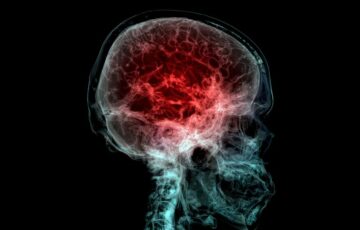Smriti Mallapaty in Nature:
 In the more than six million years since people and chimpanzees split from their common ancestor, human brains have rapidly amassed tissue that helps decision-making and self-control. But the same regions are also the most at risk of deterioration during ageing, finds a study1 that compared images of chimp brains with scans of human brains.
In the more than six million years since people and chimpanzees split from their common ancestor, human brains have rapidly amassed tissue that helps decision-making and self-control. But the same regions are also the most at risk of deterioration during ageing, finds a study1 that compared images of chimp brains with scans of human brains.
Previous studies have shown that regions of the human brain that are the last to mature, such as parts of the frontal lobe, are the first to show signs of ageing2, a theory known as ‘last in, first out’. The latest study shows that some of those regions that mature later, and are most susceptible to ageing, also evolved most recently in humans.
The results tend to support the “important hypothesis that our cortical expansion came at the price of age-related decline”, says Rogier Mars, a neuroscientist at the University of Oxford, UK. The results were published in Science Advances on 28 August.
More here.
Enjoying the content on 3QD? Help keep us going by donating now.
